American Express loses its final appeal – it must cut its interchange fees
Links on Head for Points may support the site by paying a commission. See here for all partner links.
The end could be approaching, medium term, for the free British Airways American Express credit card after American Express finally lost a key European Union ruling yesterday.
The decision means that the implicit interchange fee on the British Airways, Starwood, Nectar, Costco and Harrods American Express cards must be capped at 0.3%. American Express Gold, Platinum, Business Gold and Business Platinum will remain uncapped.
In effect, although this is not strictly how it works, for Visa and Mastercard products the interchange fee is the bulk of the fee charged to a retailer for accepting a payment card and represents the cut taken for the use of the Visa and Mastercard processing networks. Other fees cover terminal rental and incidental costs involved in accepting cards.
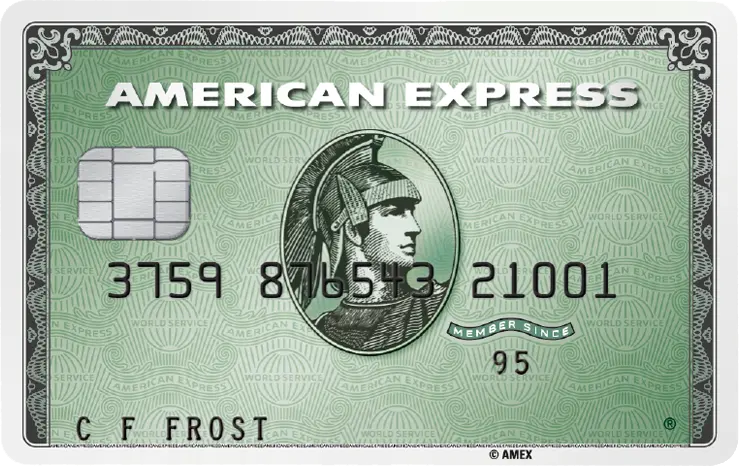
We first wrote about this last July when the EU’s Advocate General published his guidance to the European Court of Justice. He advised the ECJ to find against Amex, and yesterday the ECJ agreed.
It doesn’t take a genius to realise that the free British Airways American Express is a dead duck long term with 0.3% implicit interchange fees, given that Amex will be paying BA something close to 1p per Avios for the points. Interest income, terminal rental and FX fees from foreign usage are unlikely to fill the gap, especially with 2-4-1 vouchers to fund as well.
Given that the BA Amex cards have billings of over £1 billion per month, however, it is a problem that both BA and Amex will need to solve before the current contract expires.
Background
Let’s step back a bit.
In 2016, the EU capped the interchange fees charged by Visa and Mastercard at a maximum of 0.3% for personal credit cards and 0.2% for personal debit cards. Fees were previously 0.75% and above.
It claimed, arguably correctly, that the two companies were exploiting their oligopoly on payment processing by charging disproportionate fees, especially as all of the risk was taken by the retailer (in case of charge backs) and the card issuer (in case of bad debts).
In theory, American Express should have nothing to do with this. Amex is vertically integrated and there is no intermediary sitting between the retailer and Amex who is adding additional fees. A retailer was free to either work with Amex, paying the fees they requested, or not.
The EU law is badly worded, however. It states (and this is a massive simplification on my part) that personal cards which involve four parties – for Visa, this is the customer, the retailer, the payment processer and the card issuer – must have their interchange fees capped.
American Express Gold and Platinum charge cards, and Platinum cashback cards, clearly only have three parties involved in the process – the customer, the retailer and Amex. No problem there. These cards are not and will not be capped.
However, the court has found that, as drafted, an Amex-issued card with a co-brand partner means that there is a fourth person in the relationship. The BA Amex involves British Airways, American Express, the retailer and the customer. And if a card has four parties involved, it MUST have its implicit interchange fee (although no-one is clear how this should be calculated as part of Amex’s overall fees) capped at 0.3%.
This was the question put to the Advocate General:
“The referring court asks the Court of Justice to clarify whether, in those circumstances, the activities of a three party scheme can be treated as those of a four party scheme, for the purposes of the Regulation in all cases (in other words, it is sufficient that there is a co-branding partner or agent) or only if a co-branding partner or agent is a payment service provider which issues the cards.”
The latter bit – “only if a co-branding partner or agent is a payment service provider which issues the cards” – is what happens when MBNA issues an American Express card. No-one is doubting that these cards should have their interchange fees capped.
Surely, though, there is a huge difference between MBNA licensing the Amex brand in order to issue a credit card and American Express using the BA brand to sell its own cards? As the original Advocate General ruling admitted:
“[the co-brand partner would] merely provide the three party scheme with access to their customer base”
And:
“Amex and the United Kingdom Government submit that, if the co-branding partner or agent confines its activity to the distribution of cards, technical payment services or simply the processing and retention of data, it does not act as an issuer, so that arrangements for the extension of three party schemes are not covered by Articles 1(5) and 2(18) of the Regulation, which means that they cannot be considered to be the same as four party schemes.”
What is more complex is that American Express doesn’t even charge interchange fees because there is no intermediary. There are no interchange fees to cap. Instead, it has to cap its general fee charged to retailers. This will presumably need to be set at a level similar to the total fees now charged to retailers for accepting Visa or Mastercard.
To give an example of how this comes down to interpretation of the exact wording of the law:
“In their submission, Articles 1(5) and 2(18) of the Regulation refer to three party schemes which ‘issue [cards] with a co-branding partner’ and which ‘issue [cards] through an agent’. They [Amex et al] contend that the terms ‘with’ and ‘through’ show that the co-branding partner or agent must be involved in the issuing of the card, to which end they rely on the connection between those provisions and other provisions of the Regulation.”
Amex lost:
“In short, Articles 1(5) and 2(18) of the Regulation must be interpreted as meaning that a three party payment card scheme issuing card-based payment instruments with a co-branding partner or through an agent must be classified as a four party payment card scheme, regardless of whether or not the partner or agent is involved in the issuing of cards and/or the acceptance of payments.”
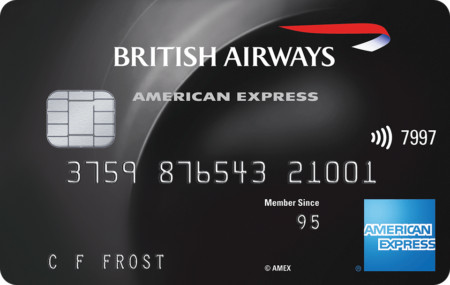
What does this mean for the British Airways American Express and other co-brand Amex cards?
We can’t be sure. I asked Amex for a statement yesterday and they said:
“We are currently reviewing the Court’s judgements. We can, however, confirm that we have been preparing for this ruling and are committed to continuing to offer best-in-class products and services that deliver value for customers and co-brand partners. American Express Card Members can continue to use their cards as normal”.
In the short term nothing changes, because the existing contracts will continue to run. Unless there are a lot of people paying interest, it is likely that American Express will now be swallowing losses on every transaction on the free British Airways American Express.
The British Airways Premium Plus card, with its £195 fee, looks secure. I can see how the economics of that card continue to make sense in a world of 0.3% implied interchange fees.
The Nectar Amex looks in trouble, given its low annual fee and 0.5% cashback rate. The Starwood Amex will reach the end of its natural life next January when SPG and Marriott Rewards merges – it isn’t clear if Amex will continue with a card beyond that.
Amex has a strategic problem in the UK
With its fees on co-brand cards capped at the same level as personal Visa and Mastercard products, there should no reason for shops not to accept it. Amex acceptance could become universal. This is a great opportunity if the company chooses to embrace it.
Except ….. for that to happen, Amex would have to slash the rate on the Gold and Platinum charge cards and Platinum cashback cards too, even though it doesn’t have to. Shops won’t welcome Amex with open arms if they know that they will still get legged over if the cardholder pulls out a Preferred Rewards Gold instead of a British Airways Amex.
Shops have this problem with Visa and Mastercard too, to be fair. They still pay full interchange fees on cards issued outside the EU and on business Visa and Mastercards. In theory shops will be allowed to refuse cards which charge higher fees but it is very unlikely that they will. It would require terminals to display the fee after a card is swiped and for the retailer to then decide on the spot whether to continue or refuse the transaction.
What happens next?
Good question. In two weeks, I am speaking at a major Co-Brand Credit Cards conference in London where we will discussing these issues in more detail. I will hopefully be able to bring you some more news – or at least speculation – after that.
PS. If you are not a regular Head for Points visitor, why not sign up for our FREE weekly or daily newsletters? They are full of the latest Avios, airline, hotel and credit card points news and will help you travel better. To join our 70,000 free subscribers, click the button below or visit this page of the site to find out more. Thank you.
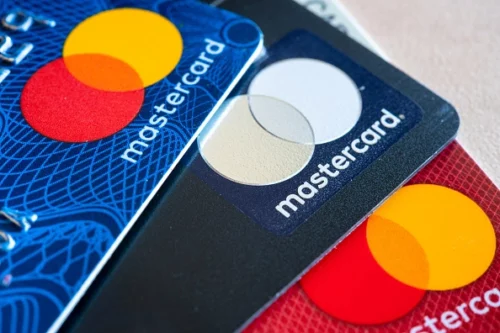
Want to earn more points from credit cards? – July 2025 update
If you are looking to apply for a new credit card, here are our top recommendations based on the current sign-up bonuses.
In 2022, Barclaycard launched two exciting new Barclaycard Avios Mastercard cards with a bonus of up to 25,000 Avios. You can apply here.
You qualify for the bonus on these cards even if you have a British Airways American Express card:

Barclaycard Avios Plus Mastercard
Get 25,000 Avios for signing up and an upgrade voucher at £10,000 Read our full review

Barclaycard Avios Mastercard
Get 5,000 Avios for signing up and an upgrade voucher at £20,000 Read our full review
You can see our full directory of all UK cards which earn airline or hotel points here. Here are the best of the other deals currently available.
SPECIAL OFFER: Until 15th July 2025, the sign-up bonus on the Marriott Bonvoy American Express Card is TRIPLED to 60,000 Marriott Bonvoy points. This would convert into 25,000 Avios or into 40 other airline schemes. It would also get you at least £300 of Marriott hotel stays based on our 0.5p per point low-end valuation. Other T&C apply and remain unchanged. Click here for our full card review and click here to apply.
SPECIAL OFFER: Until 14th August 2025, the sign-up bonus on the Hilton Honors Plus debit card is TRIPLED to 30,000 Hilton Honors points. You will also receive Gold Elite status in Hilton Honors for as long as you hold the card. Click here for our full card review and click here to apply.

American Express Preferred Rewards Gold Credit Card
Your best beginner’s card – 20,000 points, FREE for a year & four airport lounge passes Read our full review

British Airways American Express Premium Plus Card
30,000 Avios and the famous annual Companion Voucher voucher Read our full review

The Platinum Card from American Express
50,000 bonus points and great travel benefits – for a large fee Read our full review
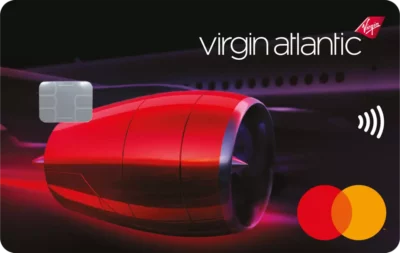
Virgin Atlantic Reward+ Mastercard
18,000 bonus points and 1.5 points for every £1 you spend Read our full review
Earning miles and points from small business cards
If you are a sole trader or run a small company, you may also want to check out these offers:

The American Express Business Platinum Card
50,000 points when you sign-up and an annual £200 Amex Travel credit Read our full review

The American Express Business Gold Card
20,000 points sign-up bonus and FREE for a year Read our full review
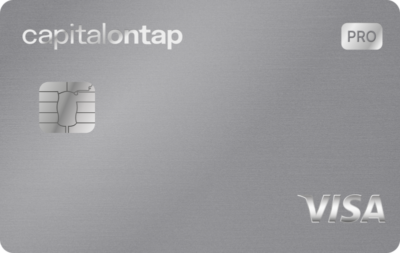
Capital on Tap Pro Visa
10,500 points (=10,500 Avios) plus good benefits Read our full review

Capital on Tap Visa
NO annual fee, NO FX fees and points worth 0.8 Avios per £1 Read our full review
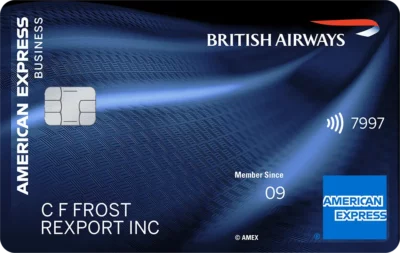
British Airways American Express Accelerating Business Card
30,000 Avios sign-up bonus – plus annual bonuses of up to 30,000 Avios Read our full review



 Rob
Rob 





Comments (120)